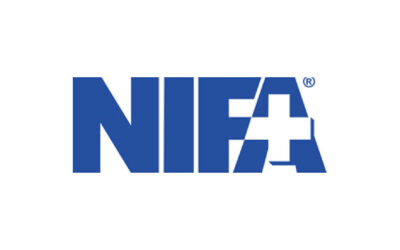By Christopher J. Hudgins
 BACKGROUND
BACKGROUND
Unplanned patient hypothermia is a preventable complication of surgery that has been identified as one of the top 10 patient safety concerns for perioperative nurses.[1] It is well documented that unless preventative measures are taken, unintended hypothermia can occur in up to 90 percent of surgical patients.[2] Forced-air warming is the most commonly used modality to prevent and treat this complication.[3] Unfortunately, despite the abundance of research on both unplanned perioperative hypothermia and forced-air warming, there is little information regarding nursing knowledge on the topics.
METHODS
A survey was developed and administered at the 2018 AORN Global Surgical Conference & Expo in New Orleans, Louisiana. The goal of this survey was twofold. The primary objective was to assess nursing knowledge of unplanned hypothermia. The second objective was to identify any knowledge gaps in the use of forced-air warming systems.
Individuals attending an in-booth education session on the exhibit floor during the conference were asked to anonymously complete a questionnaire. Those who agreed were presented with a survey containing 8 questions. The first 3 questions centered on knowledge of unintended hypothermia and were multiple-choice. The remaining 5 questions were about the use of forced-air warming and were true/false. The surveys were collected before the education presentation commenced.
Eighty-six (86) surveys were included in the results. Surveys that contained responses that were illegible and surveys that were not fully completed were excluded. Individuals completing the survey identified their current position as:
- Circulating nurse = 44 (51%)
- Other = 13 (15%)
- Operating room managers or
- directors = 13 (15%)
- Educators = 7 (8%)
- Registered nurse first assistants = 5 (6%)
- Retired = 3 (3%)
- Post-anesthesia care unit or pre-op nurse = 1 (1%)
Those who marked “other” were instructed to write in an answer. They identified their current position as: charge nurse, clinical supervisor/leader, consultant, data/business analyst and quality manager.
For more information, visit ORToday.com/UnintendedHypothermia.
REFERENCES
1. Steelman VM, Graling PR, Perkhounkova Y. Priority patient safety issues identified by perioperative nurses. AORN J. 2013;978(4);402-418.
2. Sessler DI. Mild Perioperative Hypothermia. New Engl J Med. 1997; 336(24):1730-1737.
3. Sun, Zhuo et al. “Intraoperative Core Temperature Patterns, Transfusion Requirement, and Hospital Duration in Patients Warmed with Forced Air.” Anesthesiology 122.2 (2015): 276–285. PMC. Web. 26 July 2018.








